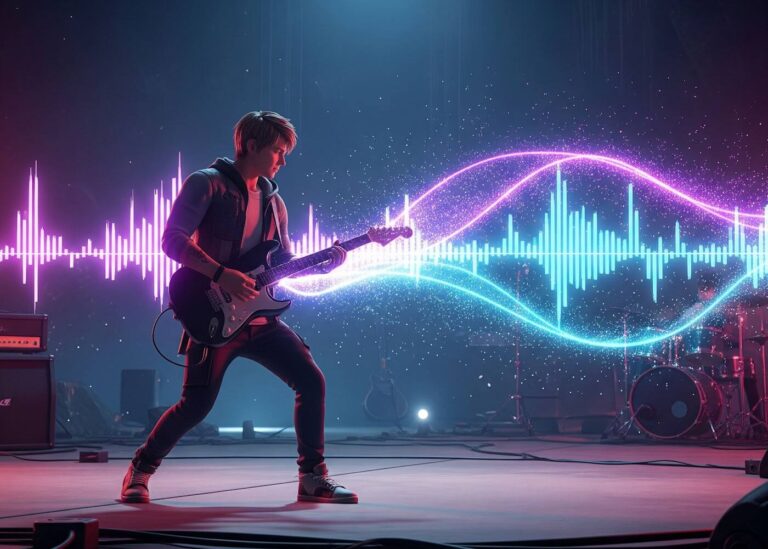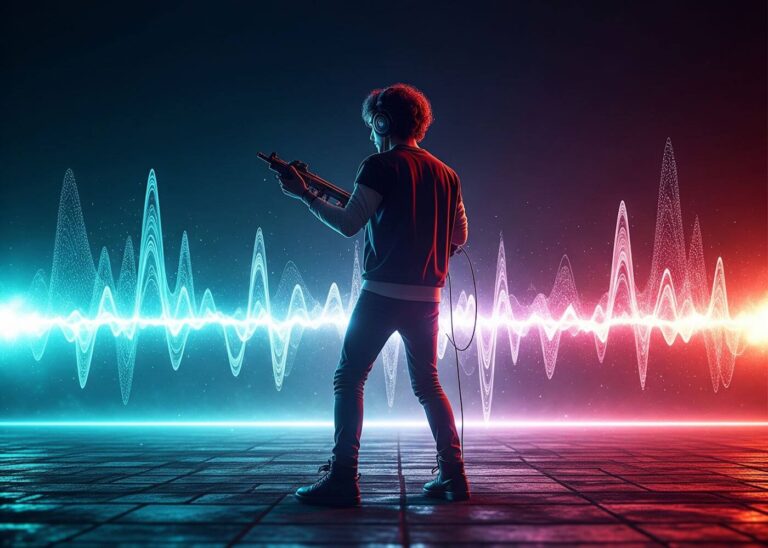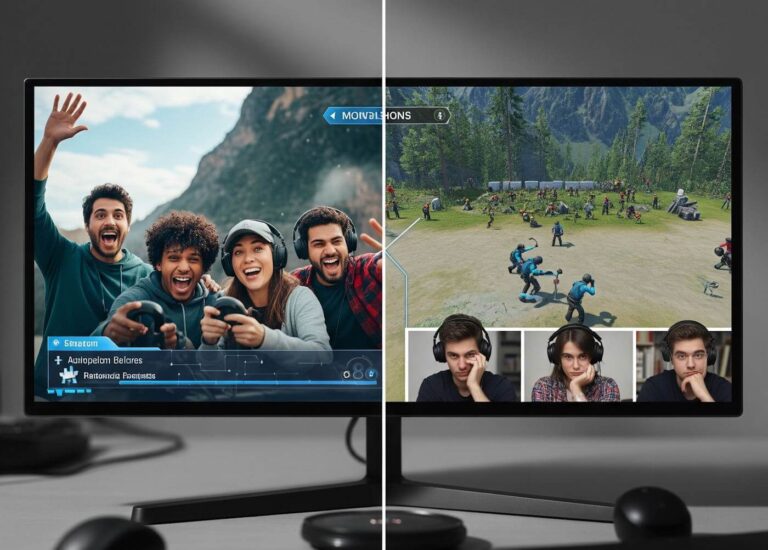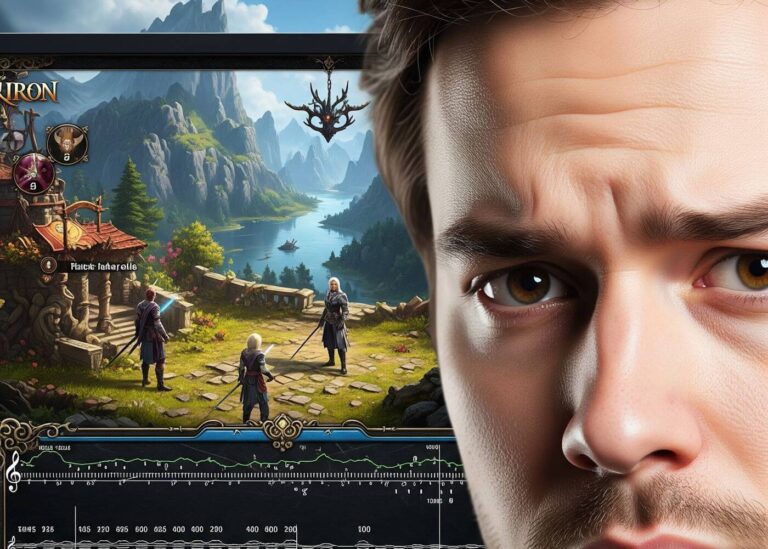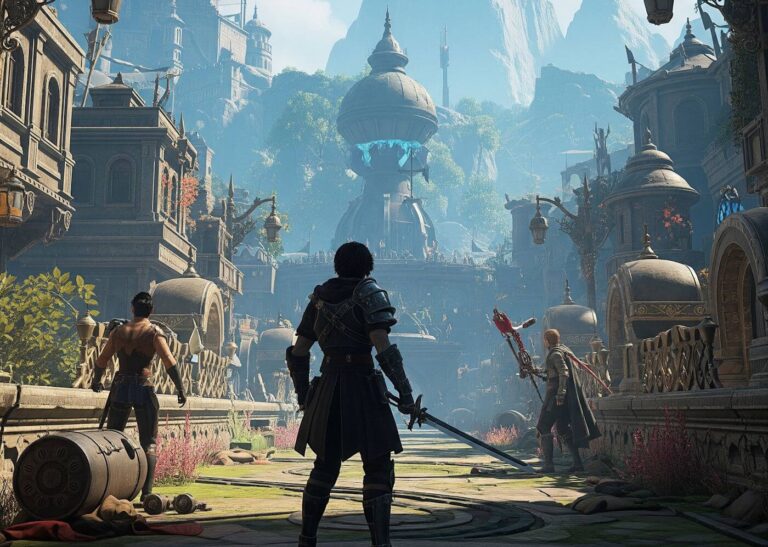Why Gamers Love Listening to Soundtracks Outside the Game
The Emotional Power of Game Music
In the realm of video games, the significance of music often transcends mere background noise; it becomes an integral element that enhances the player’s journey. Gaming soundtracks play a crucial role in crafting the narrative and emotional landscape of a game. From stirring orchestral compositions to electronic soundscapes, the auditory experience is meticulously designed to evoke feelings that resonate with players long after they’ve logged off.
The emotional power of game music is profound, as it can amplify tension, celebrate victories, or evoke nostalgia. Many players find themselves immersed in the world of a game, with music acting as a catalyst for emotional engagement. For instance, the sweeping melodies in epic battle scenes can intensify the adrenaline rush, while soft, serene tracks can create moments of reflection and connection to the storyline. This ability to elicit emotional responses is why many gamers seek out these soundtracks outside their gaming experiences, finding solace and enjoyment in the melodies that once accompanied their adventures.
Moreover, gaming music often reflects the cultural context of the game, further enhancing its emotional depth. Different genres and styles can represent a variety of themes and settings, from futuristic spacescapes to fantastical realms. This diversity not only caters to a wide range of musical tastes but also fosters a deeper connection between players and the games they love. As such, it becomes clear that the allure of gaming soundtracks extends beyond mere sound; it encompasses a shared experience and collective emotion that transcends the screen.
In conclusion, the immersive and emotional qualities of gaming soundtracks greatly enrich the overall gaming experience, making them an influential aspect of contemporary video game culture. Whether through nostalgia, connection, or simply a love for music, gamers find themselves drawn to these soundtracks, furthering their appreciation for the artistry involved in game design.
Nostalgia and Memories Associated with Game Music
The enchanting world of gaming soundtracks holds a significant place in the hearts of players, as these melodies often evoke powerful feelings of nostalgia. Video game music transcends mere auditory pleasure; it intertwines with cherished memories, transporting players back to the moments spent exploring fictional realms. This phenomenon occurs because music has a remarkable ability to create emotional connections, bringing to mind specific experiences associated with games. For many gamers, the scores they hear resonate not just within the context of gameplay but as an integral part of their life narratives.
Immersion and Atmosphere: The Role of Sound in Gaming
The integral role of sound in gaming cannot be overstated. Soundtracks serve not only as background music but also as crucial elements that contribute significantly to the gaming experience. A well-composed score enhances gameplay, immersing players into the game’s world by evoking emotions tied to the storyline and characters. This invokes a sense of presence, making players feel as though they are part of a living, breathing environment.
Moreover, music alters the atmosphere, setting the tone for various scenarios encountered during gameplay. For instance, a tense, suspenseful score may heighten the anticipation during a boss fight, while a serene and melodic composition could create a calming effect during exploration phases. This responsive relationship between music and gameplay is what keeps players engaged, allowing them to feel the weight of their decisions and the stakes of their actions. The auditory components of a game help to amplify key moments, making them memorable and impactful.
As gamers often replay their favorite titles, the accompanying soundtracks enable them to relive those experiences outside of the gaming environment. The melodies and motifs become associated with specific in-game events, making the music a powerful trigger for nostalgia. Many gamers find solace and enjoyment in listening to these soundtracks during daily activities, as they transport them back to their gaming adventures. The emotional connection forged through these compositions allows players to experience the excitement and immersion of the gaming world, even when they are not actively engaged in play.
In essence, soundtracks play a pivotal role in crafting an immersive atmosphere within video games, deepening the player’s connection to the narrative and enhancing their overall gaming experience.
Genres and Diversity: The Variety of Gaming Soundtracks
The world of gaming soundtracks encompasses an extensive range of genres, each contributing uniquely to the gaming experience. From orchestral compositions that evoke a sense of grandeur to electronic beats that drive adrenaline-fueled action, the diversity in musical styles is vast. Game developers and composers often curate soundtracks that not only enhance gameplay but also attract listeners outside the gaming community. This eclectic mix reflects the varied experiences that games offer, catering to different moods and atmospheres.
Orchestral scores have long been a staple in gaming music, with titles like “Final Fantasy” and “The Legend of Zelda” showcasing rich, symphonic arrangements. These compositions often draw inspiration from classical music, creating an epic soundscape that immerses players in an expansive narrative. The lush melodies and intricate orchestration transport gamers to fantastical realms, reinforcing the emotional weight of the story and gameplay.
On the other end of the spectrum, genres such as electronic, chiptune, and synthwave have risen to popularity, particularly in indie gaming. These styles often feature catchy, upbeat tunes that resonate with younger audiences. Games like “Celeste” or “Hyper Light Drifter” exemplify how electronic soundtracks can enhance gameplay mechanics and evoke nostalgic feelings reminiscent of retro gaming. The rhythmic pulsations of electronic music can energize players and complement fast-paced action sequences, making them an integral part of the gaming experience.
Additionally, genres such as rock, jazz, and ambient music have found their place in gaming soundtracks, appealing to diverse listener preferences. Incorporating these varying musical styles allows game soundtracks to transcend traditional boundaries, inviting a broader audience to appreciate them. This genre diversity not only enriches the gaming experience but also contributes to the growing appreciation of gaming music as a legitimate art form, further solidifying the connection between gamers and their beloved soundtracks.
The Artistic Merit of Video Game Composers
The landscape of video game music has undergone a transformative evolution over recent years, as talented composers have emerged as vital contributors to the gaming industry. Historically perceived as mere background scores, soundtracks have garnered increasing recognition for their artistic merit, standing independently from the games themselves. This shift in perception highlights the intricate craftsmanship involved in creating music that enhances gameplay, builds emotional resonance, and shapes player experiences.
Furthermore, the recognition of video game music in mainstream culture has been on the rise, with orchestras holding concerts dedicated exclusively to gaming soundtracks. These performances not only honor the work of the composers but also allow audiences to appreciate game music in a concert setting. Awards ceremonies such as The Game Awards now feature categories specifically for best music composition, solidifying the artistic value of video game soundtracks within the broader music industry.
Consequently, the sonic landscape of games is no longer an overlooked aspect but is celebrated for its artistry. As gamers increasingly embrace the emotional depth and storytelling capabilities offered by these soundtracks, it is clear that video game composers are making an indelible mark on contemporary music, elevating the perception of game music to a respected art form.
The Community Aspect: Sharing and Discovering Music
The gaming community has long been a vibrant ecosystem, not just for gameplay but for the overarching cultural experiences surrounding it, including music. Game soundtracks have evolved from mere background noise to significant components of the gaming experience, eliciting powerful emotional responses. This evolution has led to a strong community aspect where gamers actively engage in sharing and discovering their favorite soundtracks. Various platforms, such as social media networks, dedicated forums, and music streaming services, serve as hubs for these interactions.
On platforms like Reddit and Discord, gamers often participate in discussions dedicated to particular game soundtracks or composers. They share personal playlists, recommend tracks, and even create tribute mixes that celebrate notable scores from beloved games. This collaborative environment encourages users to delve deeper into the music, exploring genres and styles they may not have encountered otherwise. Additionally, specialized music streaming services like Spotify and Apple Music feature curated playlists that highlight iconic gaming soundtracks, further bridging the gap between gaming and music appreciation.
Moreover, gaming conventions and events offer further opportunities for community engagement. Live orchestral performances of popular game soundtracks have become a staple at several gaming expos, allowing attendees to experience music in a collective setting. These events often bring together fans and industry professionals alike, fostering connections rooted in a shared love for the art of gaming music. As gamers share their experiences and recommendations, the collective love for soundtracks unites individuals, making the pursuit of discovering and appreciating music a communal activity.
Overall, the community engagement surrounding gaming soundtracks highlights the importance of music in gaming culture. By sharing their favorite scores, exploring new musical styles, and participating in live events, gamers contribute to a rich tapestry of interconnected experiences that enhance their connection to the gaming universe.
Listening Habits: How Gamers Incorporate Soundtracks into Daily Life
Gaming soundtracks have transcended their original purpose of providing ambiance and emotional depth within games, becoming integral parts of many gamers’ daily lives. Gamers often find themselves weaving these soundtracks into various daily routines, such as studying, working, or exercising. This integration arises from the unique qualities of gaming music, which often features high-energy compositions and melodic structures that inspire motivation and focus.
While studying, many individuals prefer instrumental soundtracks, as they often contain rhythmic elements that can enhance concentration without being overly distracting. For instance, the sweeping orchestral scores of games like “The Legend of Zelda” or the soothing melodies found in “Journey” allow users to immerse themselves in their work while maintaining a sense of tranquility. Furthermore, gamers have discovered that familiarity with these soundtracks can foster a focused mindset, creating an environment conducive to productivity.
During exercise, the driving beats characteristic of gaming soundtracks can serve as a powerful motivator. Many gamers leverage tracks from more action-oriented games, such as “DOOM” or “Final Fantasy,” to infuse their workouts with energy. The adrenaline-pumping scores encourage users to push through fatigue and keep pace during intense sessions. This synergy between gameplay-inspired music and personal fitness regimes illustrates how deeply intertwined music is with the gaming experience and overall lifestyle.
Additionally, online platforms and streaming services have made it increasingly accessible for gamers to find and listen to custom playlists filled with their favorite soundtracks. By curating these collections, listeners can surround themselves with the worlds created by their beloved games even when not actively playing. This constant access speaks to the emotional connections gamers forge with these soundscapes, allowing them to evoke nostalgia or a sense of escapism in everyday life. Through the seamless incorporation of gaming soundtracks into their routines, gamers continue to celebrate the art of sound design beyond the screen.
The Impact of Game Soundtracks on Mental Well-Being
Game soundtracks have become an integral part of the gaming experience, extending their influence beyond the screen to significantly impact mental well-being. The emotional weight carried by these scores can elevate a player’s mood, offering a much-needed escape from reality. As gamers immerse themselves in their favorite titles, the accompanying soundtracks serve as a powerful tool for enhancing the overall experience, often leading to improved mental health outcomes.
Many players find comfort in listening to game soundtracks during their daily activities, such as studying or working. The melodies crafted by talented composers are designed to evoke strong emotions, which can help in reducing stress and anxiety levels. For instance, calming themes from adventure games often provide a soothing backdrop that encourages focus and concentration. Drawing on the shared experiences of gaming communities, players frequently report that these soundtracks create a sense of nostalgia and familiarity, thereby promoting feelings of happiness and contentment.
Furthermore, game soundtracks provide a form of escapism, allowing individuals to navigate through their emotions. Whether it’s the triumphant overtures of a victory theme or the melancholic notes of a reflective moment, these compositions enable listeners to indulge in a range of feelings without the limitations found in real life. This emotional outlet can be particularly beneficial for gamers, offering them a chance to explore complex themes such as love, loss, and adventure, often enhancing their psychological resilience.
The act of engaging with game soundtracks can also foster a sense of community among players. Whether through shared playlists or discussions on various forums, the appreciation of these scores creates connections that can alleviate feelings of isolation. They become a means through which gamers can bond over shared experiences, thus reinforcing social ties that are essential for overall mental well-being.
Conclusion: The Enduring Appeal of Gaming Soundtracks
Gaming soundtracks have carved a distinctive niche in the realms of both the gaming industry and popular music culture. Their ability to enhance a gaming experience, evoke emotions, and create memorable moments is undeniable. As players immerse themselves in various virtual worlds, the accompanying music becomes an integral part of their journey, reinforcing narratives and heightening emotional responses. This synergy between gameplay and music fosters an appreciation that extends well beyond the screen.
The continued popularity of gaming soundtracks can be attributed to several factors. First and foremost, many gamers find comfort in the familiar melodies associated with their favorite titles. The intrinsic connection formed through lived experiences, nostalgia, and shared moments with friends and communities enhances their desire to engage with these soundtracks outside of gameplay. Moreover, gaming music has evolved to reflect various genres, consistently pushing the boundaries of creativity while appealing to diverse audiences. This evolution not only showcases the talent involved in composing these scores but also highlights the growing recognition of gaming music as a legitimate art form.
Furthermore, the broader music landscape has begun to embrace these soundtracks, resulting in live performances, remixes, and collaborations that interlink traditional music with gaming. As technology progresses and platforms for music consumption diversify, gamers will likely continue to seek out their cherished soundtracks, integrating them into different aspects of their lives. Moreover, the emerging trend of virtual concerts and streaming music services increasingly cater to this audience, hinting at promising developments for the future of gaming music. As a fusion of entertainment mediums, gaming soundtracks are poised to endure, captivating new generations of fans while maintaining their esteemed position within the cultural zeitgeist.


